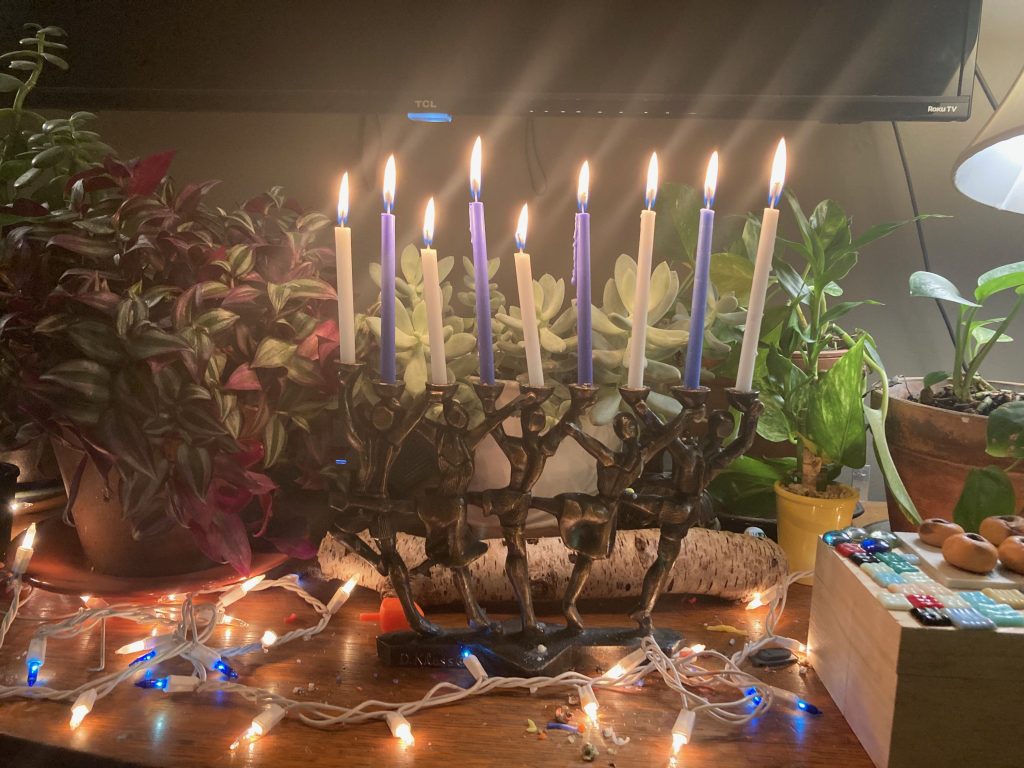
The practice of Nittel Nacht has its origins in Eastern Europe in the late Middle Ages, when tensions between Christians and Jews ran high. On Christmas Eve when most Christians were headed to church, the visible reminder of the ‘otherness’ of the Jews who were not participating incited antisemitism. It was feared that Jews would be attacked when headed to study Torah on Christmas; therefore, Rabbis banned Torah study on that day. There are other theories for the prohibition of Torah study on Nittle Nacht, such as the belief that studying Torah on this day would lend merit to Jesus. Whatever the origin of this holiday, for centuries Nittle Nacht observances usually involved Jews hunkering down and playing cards, chess, and dreidel as an alternative to study.
In the days leading up to Christmas this year, the Nittel Nacht tradition has been on my mind. The holiday season exposes the difference in cultural and religious practices in modern times as much as it did in the Middle Ages. We may not be walking though villages to the synagogue, but kids experience this difference in schools and adults in the workplace. Differences that may have been unseen at other times of the year are pushed out into the open and become seen.
Recently, I attended a shabbat service at Temple Beth El in Bloomfield Hills in solidarity after the antisemitic attack they suffered a few weeks ago. During this service Congresswoman Haley Stevens spoke about her work addressing antisemitism in Washington. Stevens asserted that the antidote to antisemitism is to put acts of antisemitism in the spotlight and bring conversations about antisemitism into non-Jewish spaces. Making these events known to the wider community encourages awareness about antisemitism and encourages our allies to stand up against it when they see it.
People fear what they do not understand. The recent antisemitic attack was focused around Israeli politics and old Jewish tropes that do not reflect the richness of modern Jewish culture. It is clear that this misled individual had no experience with the wide diversity of Jewish thought and experience that exists in the world. Jews in the Middle Ages found solace in staying indoors and trying to bring attention away from their ‘otherness’ on Christmas. In our current political climate, we do not have the option to sit outside of the cultural or political discourse. But the degree to which it is our responsibility as Jews to correct misconceptions is up for debate.
On this occasion of Nittel Nacht, I invite you to consider the questions that arise from our current experience of ‘otherness’ on Christmas. To what extent is it our responsibility as Jews to actively correct malevolent Jewish tropes? What characterizes our multicultural American experience of Nittel Nacht in a county where we are not the only non-Jews living in a predominantly Christian nation? What spaces do you feel most comfortable confronting antisemitism with non-Jews? Do conversations around Judaism come up more frequently in school and work during he holidays? And if so, is this an appropriate time to discuss antisemitism? Feel free to comment below!


